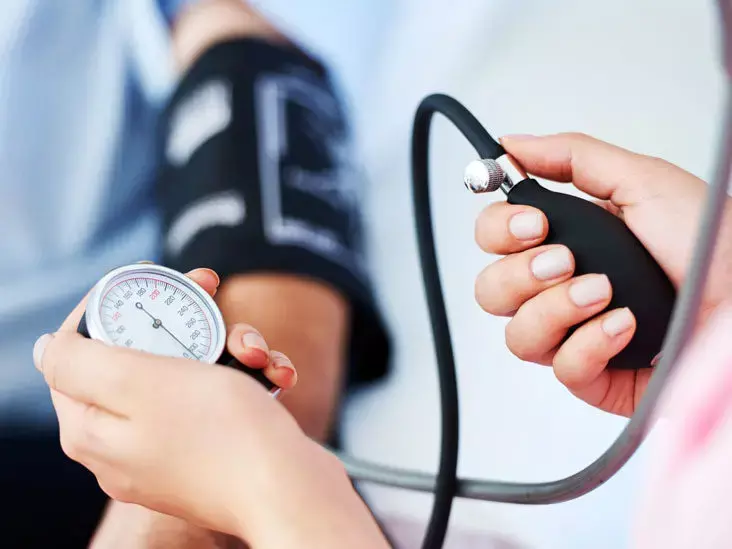- Home
- Medical news & Guidelines
- Anesthesiology
- Cardiology and CTVS
- Critical Care
- Dentistry
- Dermatology
- Diabetes and Endocrinology
- ENT
- Gastroenterology
- Medicine
- Nephrology
- Neurology
- Obstretics-Gynaecology
- Oncology
- Ophthalmology
- Orthopaedics
- Pediatrics-Neonatology
- Psychiatry
- Pulmonology
- Radiology
- Surgery
- Urology
- Laboratory Medicine
- Diet
- Nursing
- Paramedical
- Physiotherapy
- Health news
- Fact Check
- Bone Health Fact Check
- Brain Health Fact Check
- Cancer Related Fact Check
- Child Care Fact Check
- Dental and oral health fact check
- Diabetes and metabolic health fact check
- Diet and Nutrition Fact Check
- Eye and ENT Care Fact Check
- Fitness fact check
- Gut health fact check
- Heart health fact check
- Kidney health fact check
- Medical education fact check
- Men's health fact check
- Respiratory fact check
- Skin and hair care fact check
- Vaccine and Immunization fact check
- Women's health fact check
- AYUSH
- State News
- Andaman and Nicobar Islands
- Andhra Pradesh
- Arunachal Pradesh
- Assam
- Bihar
- Chandigarh
- Chattisgarh
- Dadra and Nagar Haveli
- Daman and Diu
- Delhi
- Goa
- Gujarat
- Haryana
- Himachal Pradesh
- Jammu & Kashmir
- Jharkhand
- Karnataka
- Kerala
- Ladakh
- Lakshadweep
- Madhya Pradesh
- Maharashtra
- Manipur
- Meghalaya
- Mizoram
- Nagaland
- Odisha
- Puducherry
- Punjab
- Rajasthan
- Sikkim
- Tamil Nadu
- Telangana
- Tripura
- Uttar Pradesh
- Uttrakhand
- West Bengal
- Medical Education
- Industry
Low blood pressure tied to risk of open-angle glaucoma: Study

USA: In a national longitudinal electronic health records database, a new study found that low blood pressure is associated with an increased risk of developing open-angle glaucoma (OAG). They also found no evidence to support a difference between medically treated and untreated low blood pressure. This study was conducted by Eric B. Lee BS and team with the aim to assess the relationship between blood pressure, blood pressure medications, and glaucoma using the All of Us Research Program database. The findings of this study were published in the Ophthalmology journal on 22nd October 2021.
It was a retrospective, longitudinal cohort study that makes use of the National Institute of Health's national electronic health records database. The study included eye patients in the All of Us Research Program database who had at least fifteen months of follow-up and one blood pressure (BP) measurement. Cox regression models, both univariable and multivariable, predicted the risk of developing incident open angle glaucoma (OAG). To account for changes over time, mean arterial pressure (MAP) and the number of BP medication classes were entered as time-varying predictors.
OAG was developed in 462 of the 20815 eligible eye patients who qualified for this study. Low blood pressure (MAP 83.0 mmHg) was linked to a higher risk of developing OAG. After controlling for covariates, high blood pressure (MAP > 101.3 mmHg) and the number of BP medication classes were not associated with OAG. Other risk factors for OAG included being Black, Hispanic or Latino, Asian, older, and diabetic. Female gender was associated with a lower risk of developing OAG. There was no significant interaction between MAP and the number of BP medications taken and the risk of developing OAG.
In conclusion, this study adds to the body of evidence implicating vascular dysregulation as a possible etiology for the development of OAG, emphasizing the lack of influence of blood pressure medications on this relationship.
Reference:
Lee, E. B., Hu, W., Singh, K., & Wang, S. Y. (2021). The association between blood pressure, blood pressure medications, and glaucoma in a nationwide electronic health records database. In Ophthalmology. Elsevier BV. https://doi.org/10.1016/j.ophtha.2021.10.018
Medical Dialogues consists of a team of passionate medical/scientific writers, led by doctors and healthcare researchers. Our team efforts to bring you updated and timely news about the important happenings of the medical and healthcare sector. Our editorial team can be reached at editorial@medicaldialogues.in.
Dr Kamal Kant Kohli-MBBS, DTCD- a chest specialist with more than 30 years of practice and a flair for writing clinical articles, Dr Kamal Kant Kohli joined Medical Dialogues as a Chief Editor of Medical News. Besides writing articles, as an editor, he proofreads and verifies all the medical content published on Medical Dialogues including those coming from journals, studies,medical conferences,guidelines etc. Email: drkohli@medicaldialogues.in. Contact no. 011-43720751


